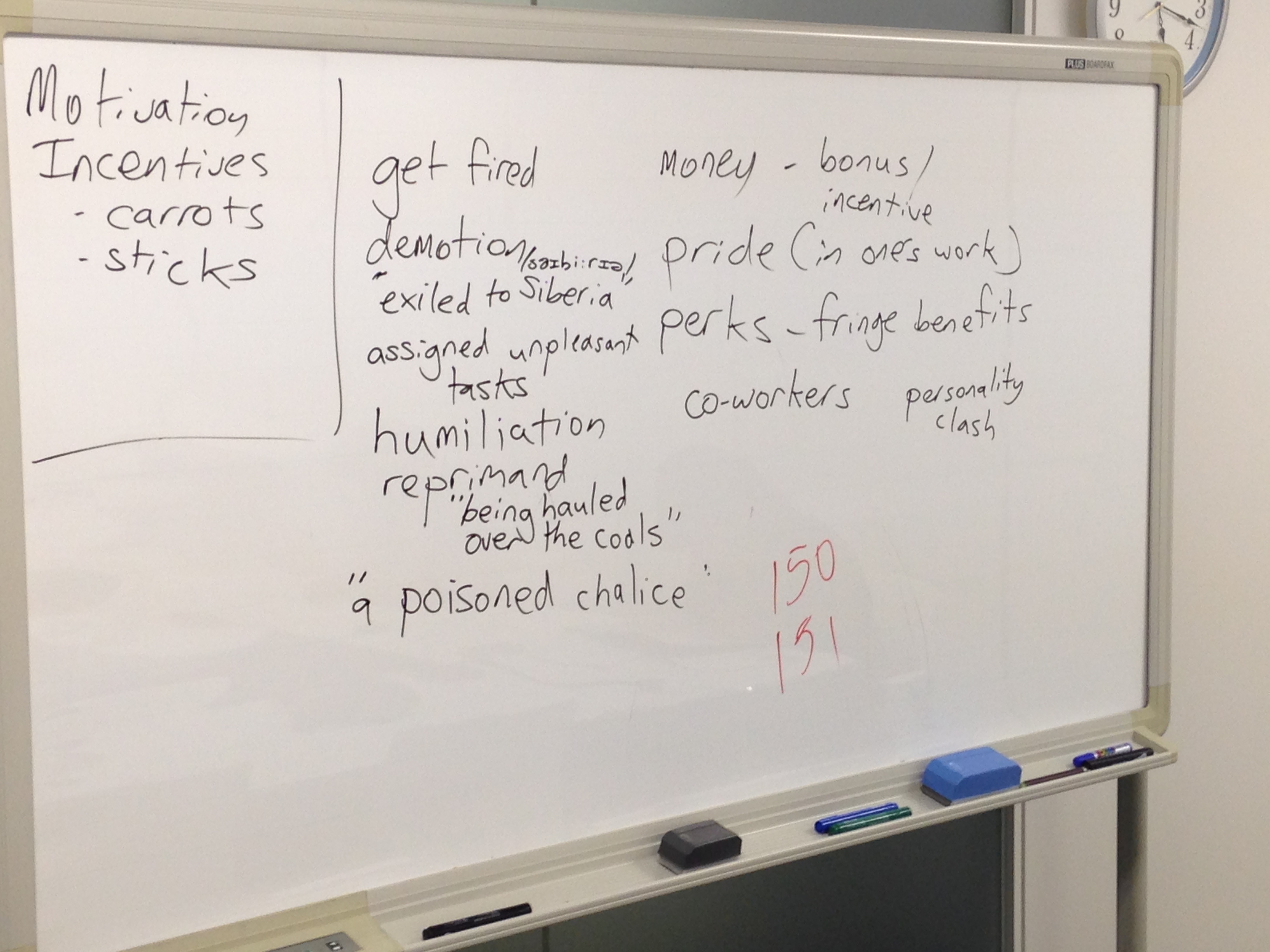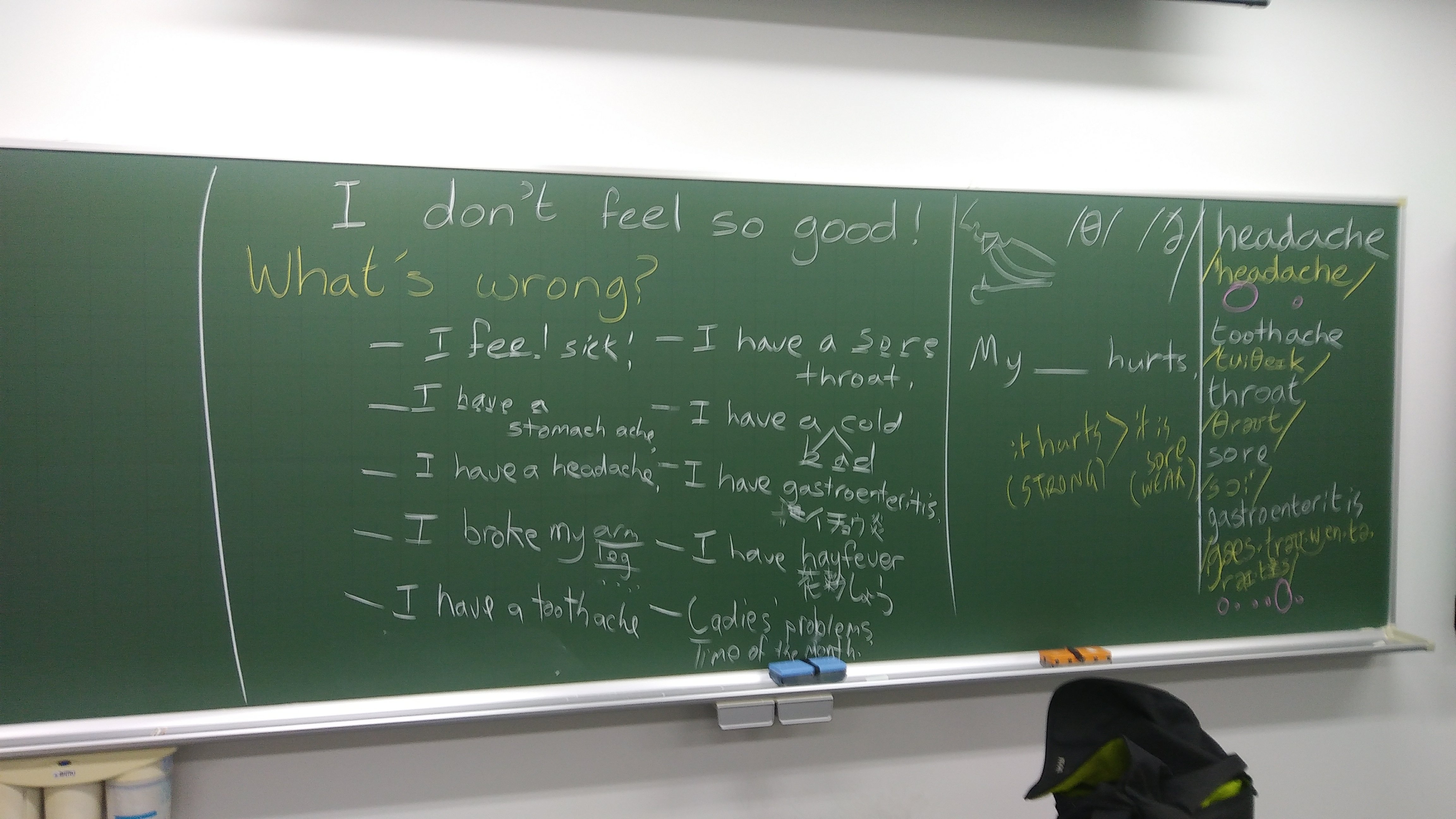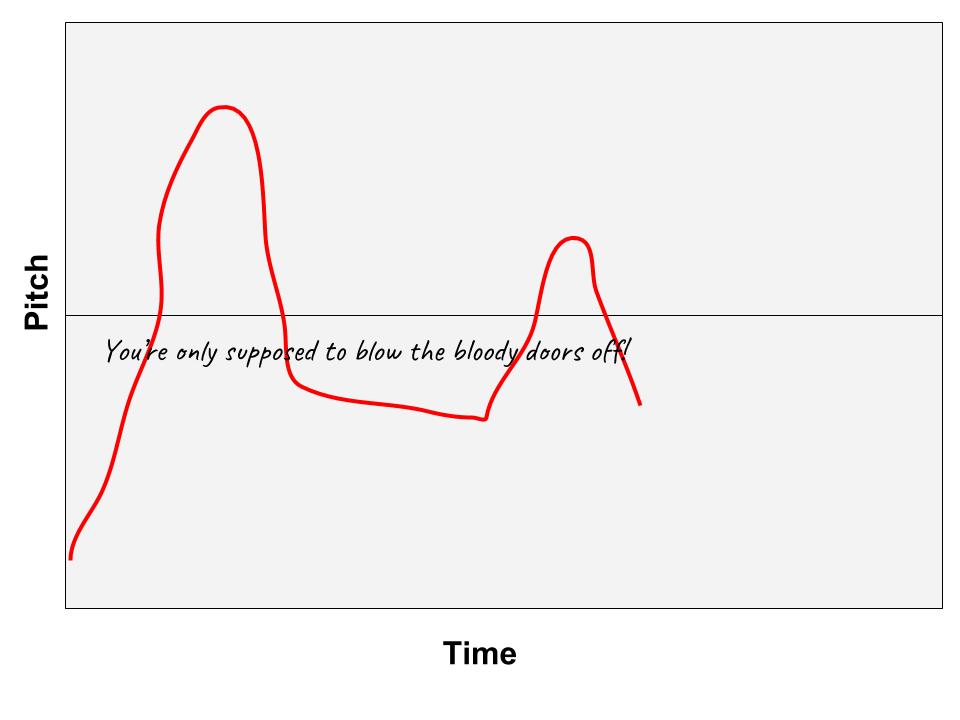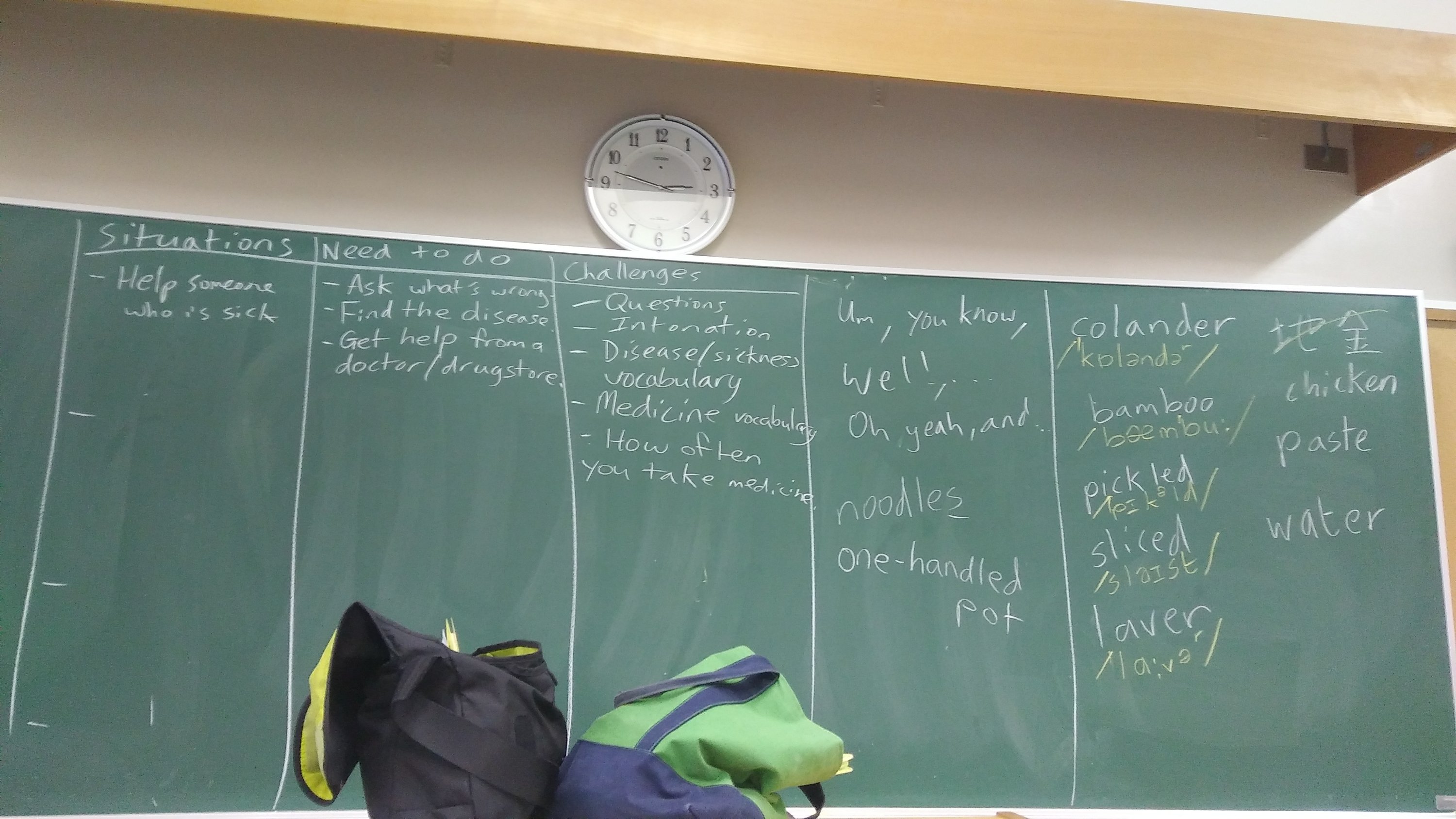This is the follow-up to my previous post, ‘Find someone who‘ which detailed several problems with the TESOL sphere. The title for this post comes from the Situationists, and is a reference to the sand found underneath the paving stones torn up in the Paris 1968 revolutionary clashes.
There is little to be achieved by only complaining about one’s problems. Certainly, it is relieving to vent. After the venting, however, we have inaction, a restored status quo. There needs to be some sort of action, no matter whether it is a tactical advancement or sabotage.
A lot of us work outside our contracted hours. For those of us creating material to be used in classes and where we retain copyright, I would absolutely advise you to sell this on. Could you sell it as an ebook? As a zip file of materials? If you don’t retain copyright, could you subvert laws and means by only using Creative Commons Share Alike media in your materials? This means that anything created must be shared with the same license. It would also mean that your organisation doesn’t benefit at the expense of everyone else, even if they do stop you from selling it on yourself. If not, totally ensure that you provide only a paper copy to your organisation so that they cannot make a digital version without some effort. Mostly PDF scans look like PDF scans. Remember to add your name under the title or at least somewhere that is a pain to cut it from. If your materials are good and you get acknowledgement without any kind of benefit other than kudos, you might as well be paid in social media likes.
Working to rule is still a thing that feels a bit mean to some of us. I disagree, though I believe I ought to do it more. It’s doing what you are contracted to do. Essentially, anything else is a freebie. If you are freelance, you probably think that freebies are horrible. If you work for an institution, these are often disguised as ‘Everybody normally comes in early to prep and leaves late after marking’. I bet everyone did it because everyone else did it before. Do you know whether everyone else has the same contract? Have you considered that working those extra bits normalises working for free? If you can afford to work for free, lucky you! Just don’t help bring about a culture where everyone else does.
For some of us, we do a phenomenal amount of CPD, including paying for our own qualifications which our organisations benefit from through bragging rights to students. If it isn’t recognised, don’t do it, or if you want to do it, don’t declare it. If your employer wants to parade your CV around, they ought to damn well pay for what’s gone onto it since you’ve been with them. This is one of the reasons I stopped working for one agency: they wanted an updated CV, but there was no extra to be paid as a DipTESOL holder. It doesn’t have to be a diploma or degree, though. Courses, conferences and even webinars take time away from our families friends and chances of getting a nutritious meal instead of being too tired to cook.
If employers are trying to deskill the profession, we need to fight back, and perhaps even fight dirty. Abandon new syllabi and teach better, knowing its better for students to not get the advertised ‘product’. Or transform the materials in such a way that only the highly skilled can use the supplementary materials. Make lesson plans unintelligible except to the initiated. You might get a stern talking to, even a warning. I might advise you, however, that the writing is already on the wall in this case and that you should probably be seeking alternative employment.
The social side of things is a different beast. Staff rooms not being safe, well, I have no idea beyond hoping others will call out bullshit if you can’t. Sometimes, even this doesn’t work. If you can keep a diary of anything, get it down on paper, or even have sympathetic witnesses who can vouch for you it might help (but equally might not). If you really can’t take it, you could consult your union if you have one if your employer is unwilling to act. If you don’t have one or get no joy, and you don’t mind burning your bridges consult the department of employment or similar. You might not have a job to go to for that employer and there would be no good reference, but there would be some kind of record of complaint at least. A declaration that there are problems. I don’t have any easy solutions here.
Similar to the invisibility of LGBTQ+ identities because it can be risky. Does one out oneself to make a point of visibility or look after oneself? I think it’s a personal decision, and you might have to go the union/department-of-employment route here, too.
I started with the Situationists and I will end with them. “Be reasonable, demand the impossible.” What is ‘impossible’ for employers and the industry at large is frequently not; it is only ‘reasonable’ and therefore right.
Month: June 2018
Find someone who…

Find someone who works more than their contracted hours without monetary compensation.
Find someone who hasn’t had a pay rise for the last five years.
Find someone who can’t afford to buy a house despite home ownership being common among people their age.
Find someone who works in a place where the staffroom is smaller than a classroom yet caters to the same number of people.
Find someone who is praised for their preparation and achievements without any recognition in job security.
Find someone who is constantly job hunting in order to transcend precarious employment.
Find someone who has made sacrifices for their workplace in spite of there being no reciprocation.
Find someone who is expected to conduct research despite having no allotted time nor payment provided to do this.
Find someone who has their working hours cut due to undersubscribed courses while their employer looks to finance new campus buildings.
Any other ideas, add them to the comments.
Making Work For Yourself
Well, first a famine and then a feast, that is, if self-indulgent nonsense is at all a signifier of a festival atmosphere. 3 posts in 36 hours!
Sometimes I think of expertise in teaching as the intuition that being time served gives to you. It’s not the sleepwalking through a class but that you can do everything through habit and stay alert to the novelties of the day. Other times I think of it as the way that you can get through a lesson without needing to plan a rationale with a 3000-word literature review and a methodology section. You already have the skills to pay the bills, as it were.

However, comfort zones are made to be broken out of. This year I am teaching a listening module (yay!) with endless amounts of faff for the resources (no way!) but which I chose to do myself (ey?) in the name of pedagogical thoroughness (hmmm!). Where do we draw the line between martyring oneself to The Absolutely Correct Way Based on Proper Scientists of Learning and being a heretic to the cult of Maybe This Is Good Enough and The Students Will Never Bloody Notice?
“It’s why they pay us the big bucks,” said a person (this very week) that would be unlikely to read this blog. Except, I feel that part of me in the standardised parts of my job feels very frustrated that some of what I do is not The Absolute Correct Way but is definitely only Maybe Good Enough. The bits of my job where I have designed the syllabus and where I have lots of independence make me really happy, although for a few of those there were some marathon reading sessions on good practice for reading and writing pedagogy.
“That book basically teaches itself,” said someone in a staff room this week. I didn’t even have a small aneurysm. I sat on my hands and did nothing; no arguing, not even a grumble. I just disagreed, felt that I understood the time pressures but wondered why they even had a Master’s degree if they enjoyed being deskilled so much.
Anyway, there’s assessment as well. Not being much of one for exams, them being a single event that might not be representative of learning development, I sort of eschewed them as much as possible until this year going with portfolios and ongoing assessment. Unfortunately, I don’t think portfolio assessment is the way to go unless you are teaching a light load and have plenty of time for painstaking assessment necessary. My portfolio assessments make up a much smaller proportion of grades this year, but I do have exams to give but they are smaller, less stressful affairs. I would much rather be able to conduct task-based tests more often, but 30 in some classes and I teach 30 hours a week at different places and with different systems. The Absolute Correct Way is toast again.
Am I a bit sorry? Well, I have the flail out, yes. Is there any way around it? Well, probably not until I start a Patreon or something (joke).
So, what can be done? Well, at best, I can probably plan my time a bit better, which should be easier now I cancelled Netflix. I could do a bit more assessment in down time and use time at home as down time instead. I also have a lot of repeating classes next semester, so that is a small mercy and I won’t need to mess about with video editing software on a crappy Linux computer with insufficient RAM at midnight next autumn or winter.
Resource: Intonation Graphs
As regular readers know, I love phonology and anything to do with pronunciation and listening. I also have a need to make my learners aware of what happens in the stream of speech. They need to catch the intonation to be aware of any discourse functions, any attitudinal functions and, to the extent that they can be considered anything beyond rules of thumb, grammatical functions.
So, intonation graphs. Get the graph, draw the pitch and even write the words on the graph. Something like this.

Get it here as a Word document or PDF.
Here be (Dungeons and) Dragons – Redux
You are in a classroom. There is a dais with a desk, behind which there is a blackboard. In front of you there are eight novices awaiting instruction.
I choose to engage the novices.
Go ahead.
Today, I have a plan. However, I am interested to know if you have a different plan. My plan can be for another day. Please imagine different situations that you and Rob or Vanessa (our regular Non-Player Characters) might be in. Use last week’s lesson as a planning guide. If you need help, please ask me.
Roll D10>3 and D4<4 for successful engagement and +1 courage.
D10=7,
D4 falls off desk… =1.
It went really well, actually. The students planned in two groups of 4. One group decided on explaining a road relay (and did very well indeed), and the other planned to teach how to make miso soup, which they underestimated the complexity of, but I see this as a good learning experience. I also think that by giving my students a metaphorical look behind the curtain that they can understand the success criteria for the tasks I create a bit better. I would still like a bit more linguistic complexity in their output, but today I am going to take this as a success.
XP +D6
D6=4.
Read Here be (Dungeons and) Dragons previous ‘chapters’: 1, 2, 3, 4, 5, 6, 7, 8, 9.